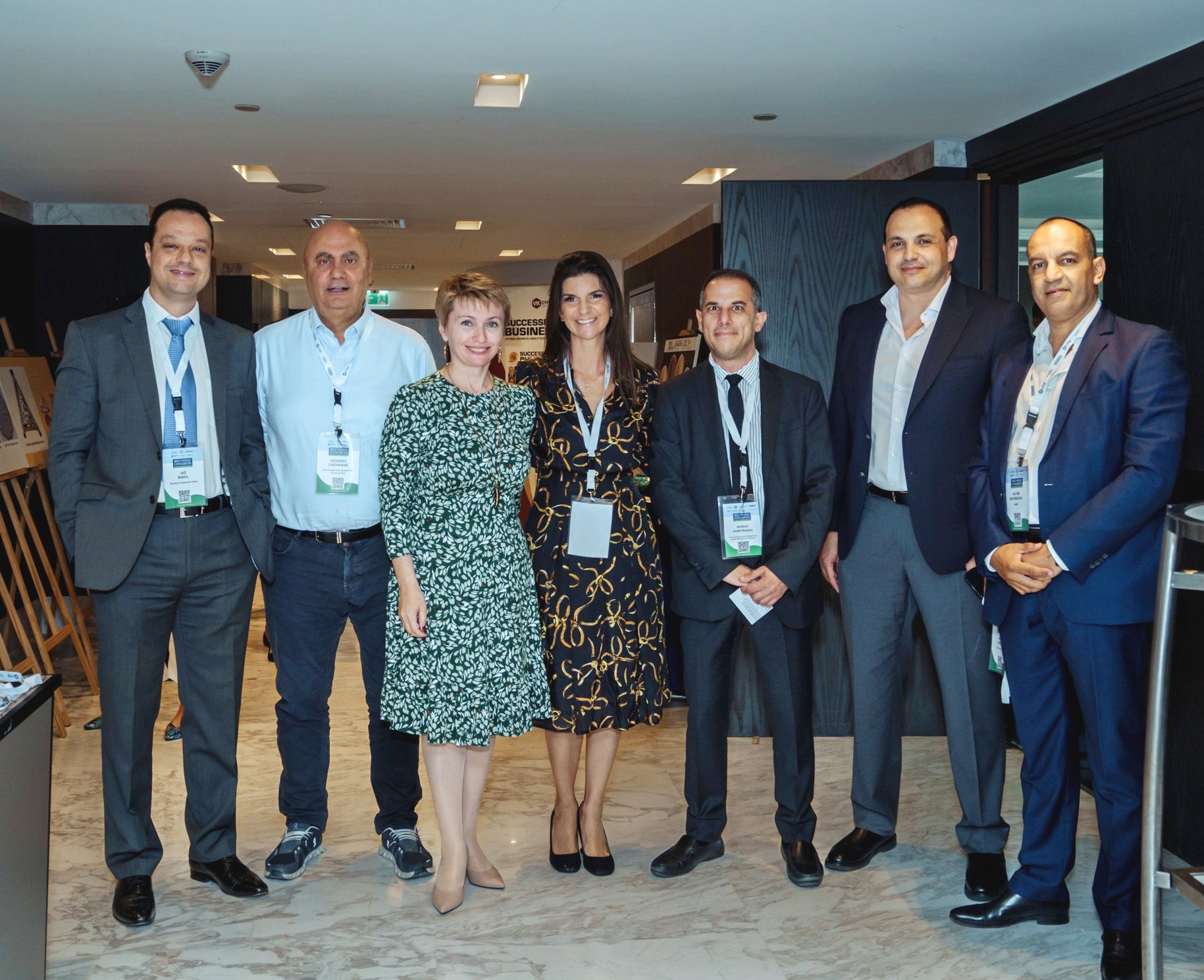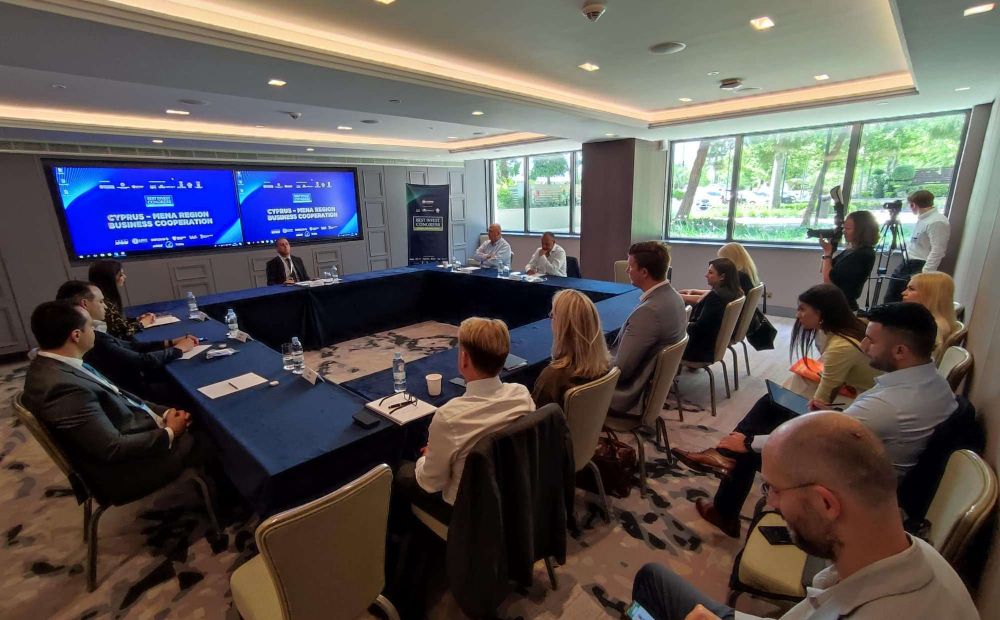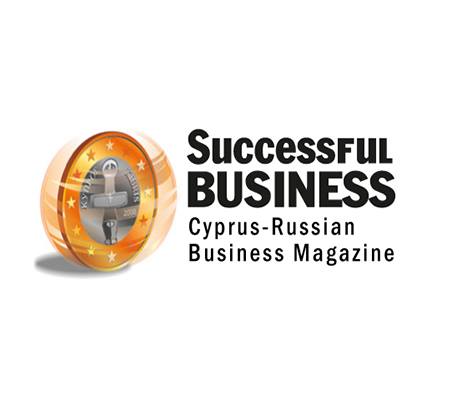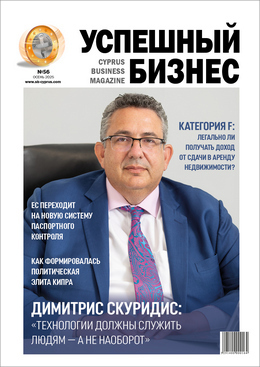Following the economic impact of the current geopolitical issues in Ukraine and the severed relationships between Cyprus and Russia, Cyprus is now in need to attract investments from new markets, and one of these markets is MENA.
Insightful views were shared in this panel, moderated by Marios Demetriades, Financial Services Professional, former Minister of Transport, Communications and Works.
Marios Demetriades introduced the first panellist, Georges Chehwane, who is a successful businessman in the space of Real Estate Development in Cyprus, Lebanon, UAE, Bahrain, and Greece. Mr Demetriades asked Mr Chehwane whether he believed we can attract new business from the MENA region following the impact from COVID; the abolition of the citizenship program; and most recently following the Russian sanctions and with the closing of bank accounts affecting those who did not have a business established here in Cyprus.
Georges Chehwane started by clarifying “There are two regions in MENA - the Middle East and North Africa. We are all aware not many people visit Cyprus from North Africa and from Egypt, which sits between the Middle East and North Africa. For the Arab World in the Middle East, we have two categories. We have Levant - Lebanon, Syria, Jordan and Iraq and the Gulf region which consists of Saudi Arabia, United Arab Emirates, Kuwait, and Oman”.
Georges Chehwane pointed out that Cyprus had the best relationship with strong investment interest from Levant countries and in particular from Lebanon. The reason being is its proximity to Cyprus. He reminded everyone that the flight from Beirut to Cyprus only took 25 minutes. Speaking of Israel, Mr Chehwane indicated that this is a stand-alone market, where Cyprus has seen, the past couple of years, an influx of investments from Israelis.
There are three reasons behind the attraction to invest in Real Estate from Levant region. The first one being relates to permanent residency. Although, it is not as attractive as Greece and Portugal who are part of the Schengen scheme, we had a lot of people from Lebanon, Egypt, Iraq, and Jordan investing here to acquire the permanent residency, however, with the new regulation, we will see less people investing here. People have pointed out to us they preferred to invest in Greece - with as little as €250k as they were able to get the “Golden Visa”.
In Cyprus, some are interested in getting residency; some people arrive due to political problems in their countries and Cyprus is a welcoming nation and of course, the weather plays a big part in their decision making where to establish themselves.
We have a lot of clients buying properties for investment purposes to get a good return. To date, rental returns range between 5-8% and on some occasions 10% mainly from short-term rentals. This is very attractive for investment! There are also companies that would like to establish their headquarters here in Cyprus and this of course, increases the demand for residential properties. Mr Chehwane pointed out “ In Larnaca, there are 200 Real Estate companies of which 160 are Lebanese. We mainly see Lebanese investing in development, purchasing 5-10 units for rental purposes or purchase buildings to set up their headquarters”.
Mr Chehwane continued to say “In terms of transaction numbers, the higher investment from the Arab countries takes place in Larnaca, with 20,000 units sold the past 6 years and 3-4k in Limassol with less in Nicosia, Agia Napa and Paphos. In terms of volume, Limassol has the highest number because of the average price of purchasing a property, is three times more expensive than Larnaca. Then comes Protaras, Agia Napa, Nicosia and Paphos. Nicosia is mainly attractive due to schools”.
Mr Chehwane’s belief is if Cyprus does not become a member of the Schengen system, Cyprus will see more and more investors choosing Greece as their destination.
In addition, he added that another main problem is with the issuing of residency visas. “As we all know, the fast-track system is no longer working efficiently and nowadays, it takes 7 months to 1 year to get a residency. Since COVID, the system has been backlogged and some people are still waiting to receive their residency in 2019, which is unacceptable. The other problem people are facing, which is also an international problem, is the challenge not being able to open a new bank account, due to the stringent compliance and regulations now in place.”
Georges Chehwane believes, there is no other market here in Cyprus right now to replace the loss of the Russian market. This will certainly affect the region of Limassol. He went on to share an example “ From the 160 units we recently sold, 120 units were purchased from Russians”.
Marios Demetriades thanked Mr Chehwane for his views and informed the delegates, that Cyprus is expected to enter the Schengen Agreement by end of this year and then invited Farah Shammas, Managing Director St Raphael Resort and Marina to share her views.
Mrs Shammas informed the delegates that her family were one of the first foreign investors here in Cyprus who came in the late 70’s, from the MENA region. Mr Demetriades asked Farah Shammas, whether she believed, with the loss of the Russian market, if the MENA region could replace that loss. If yes, to give her views how to tap into that market.
Mrs Shammas pointed out “All of Cyprus has been massively affected from the Ukraine geopolitical problems and there is no fast recovery from that, as we have been heavily dependent on both the Russian and Ukrainian markets.”
Farah Shammas added that during the conflict in Lebanon, many Lebanese moved to Cyprus, however, when this ended, they moved back disgruntled. She pointed out that those days, Cyprus was a bit xenophobic, however, nowadays is a different story. Cyprus and in particular Limassol, has become cosmopolitan.
Moving to tourism, Farah Shammas pointed out that arrivals were still on level with 2016 and the recovery since COVID, has been outstanding. This year, she feels the second quarter will be a bit challenging. At St. Raphael they have experienced double figures from the MENA region, considering all the problems in the region.
Mrs Shammas then went on to say that to improve attracting more people from MENA, connectivity must be addressed as a matter of urgency, in addition to Cyprus entering the Schengen Agreement scheme. Connectivity is key! “It is a shame when the conflict started in Lebanon Cyprus did not act on this, otherwise, we would have been in a different situation today. Previously we used to have daily flights from Paris and mainly Lebanese used this connection - Cyprus used to be a major hub in this region. Now that the Casino is opening, it will certainly attract more arrivals from MENA, especially, as we have upgraded our facilities to be more luxurious which is what people from MENA are expecting when choosing a destination, and this is positive news for us. People want to come and see the shows; the clubs and the restaurants and we now have this on offer. The sun and sea are not important factors to attract people from this region. Although, Cyprus has its luxuries, it is still value for money, another positive attraction.
Ms Shammas added her final comment “We also need to address the visa process. Especially with the Jordanian market where it is challenging for them to apply for visas. The tour operators are not confident selling flights when half of their customers will be denied entry. Coming back to the question, whether Cyprus can replace the Russian market, my answer is definitely no. However, I feel optimistic we will continue getting more business from the MENA region.”
Marios Demetriades commented on the big issue of visa applications “Part of the issue is with the European Union, as we cannot make bilateral deals because the EU is taking more control of the agreements between EU members and 3rd party countries.”
Marios Demetriades then introduced Yacine Bougrassa, Founder, BKMS, who is from Algeria and now residing in Cyprus. Mr Demetriades was curious to find out that as Cyprus does not have strong relationships with North Africa, whether we should develop a relationship and if yes, what actions should we take, to achieve this.
Yacine Bougrassa commented on this matter, by mentioning when he moved to Cyprus 22 years ago, whilst working for Société Générale, it took him time to fully understand the complexity of the region and alerted the audience to the fact that many people travelling to Cyprus, they either talk about travelling to the Greek side or the occupied area. They do not understand there are different governments in place. French people do not understand the difference between the North part and the South part of the island. Mr Bougrassa pointed out “This is telling us, we are lacking of something, in terms of projecting Cyprus to some countries. 22 years later, I am very happy living here as it offers a lot of facilities and peace when it comes to business. I will say from North Africa and the French perspective, Cyprus offers much more than many countries, maybe now less than previously. For example, to set up a company in Greece and Dubai, it takes 24 hours. In Cyprus, it takes weeks or months! We certainly need to modernise the structure here to bypass unions and streamline processes. This is the first issue that Cyprus needs to tackle.” Mr Bougrassa went on to say “Following Georges comment earlier, North Africa is not further away than let’s say Dubai. Tunisia is 2.5hrs flight from Cyprus. Going back to numbers, North Africa has more than 100million people, with GDP 20 times more than Cyprus, of course being ex-French colony, you can find many international people residing there. When we look at the issue of visa/residency in Europe, it is becoming more challenging to apply than 20-30 years ago. We also need to consider the fact that they are highly educated people and a very good reason to tap into this market. Certainly, as Farah mentioned earlier, connectivity is a big problem, and we lost a lot of business since Cyprus Airways and Cobalt stopped operating. Cyprus should now think of tax incentives to attract companies, maybe offer tax holidays 5-10 years so Cyprus can establish themselves as a sub-hub for MENA in the region.
Mrs Shammas commented “More open sky agreement needs to be set up and this is a discussion point that must be addressed”.
Mr Bougrassa then went on to say that Cyprus lacks vision, perseverance and understanding of North Africa. “ North Africans have always been fond of Cyprus, since the Makarios years, where he built strong relationships there. I believe North Africa is now ready to cooperate with the Cyprus government and develop these relationships further. I will add, we have at least 8 MOUs between Tunisia and Cyprus and Algeria and Cyprus in the draws rectified by both parties.”
Mr Bougrassa commented that recently when he travelled to African countries such as Tanzania and Kenya, he was most impressed how fast they were moving to modernising their countries. “Rwanda is becoming a start-up country and our friends in Belgium are investing in stock there, so why not focus on creating something here in Cyprus?”. Mr Bougrassa closed his remarks, by saying that there is a lot of competition in MENA, where Dubai is taking the lead, however, if Cyprus re-evaluated their offering and value-adds, he felt confident that Cyprus could develop stronger relationships with North Africa and attracted investments.
Marios Demetriades thanked Mr Bougrassa for his feedback and went on to introduce the next panellist, Baha’a Armouti, Managing Partner, AL Armouti, Jordan, who is a lawyer specializing in trade agreements. Mr Demetriades added that Mr Armouti, had an interesting contribution to give us generally about doing business with MENA with more specialization with the Gulf region.
The question Mr Demetriades asked, is whether Cyprus could be used as an incentive for doing business between the Gulf region and Europe utilizing Cyprus.
Mr Armouti commented “The potential has been very high between MENA and Cyprus, however, there is awareness problems of the rights under obligations these countries have, under the bigger umbrella of the World Trade Organisation. In my experience as a lawyer, specializing in international trade, I would say, facilitating trade means to the facilitation investment, therefore Cyprus and MENA countries both share same economic systems, which is free market economy. MENA countries, GCC countries and Jordan vis-a-vis Cyprus are W2 members and members of World Trade Organisation and what WTO did, despite controversies, achieved a milestone and unified legislations in all member countries including Cyprus and MENA countries which means they all know the principles, trading rules and investment rules in this region. What WTO provided is predictability which is needed for any trade business wishing to export their product or services into other markets. Therefore, these are the opportunities we have here. Also, the WTO agreements which are the “mother” trading legislations even in Cyprus and MENA countries, means the laws are similar and the aim of these agreements is to remove any technical barrier that may face exportation of products of services into other markets. The problem is many businesses have no awareness of these advantages and opportunities. I believe that problem of awareness cannot only be resolved by the government, it is also the responsibility to spread awareness from the private sector, for example via business associations and Chamber of Commerce. Closing, I always bring the example of a relationship between Jordan and Cyprus. In the 70’s, there was a Jordanian investment in Jordan that was built by Cypriot expertise. A company was built called “The Cypriot Tile”. It is now a leading manufacturing tiles company in Jordan that supports also major players in MENA region, exporting to Saudi Arabia and the UAE.”
Mr Demetrides then introduced the final panellist who is from the Financial Services sector, Jad Wakil, Founder and Executive Director, Mouflon Investment Fund. Mr Dimitriades commented and asked the question to Mr Wakil “ It has always been a target and an objective to develop Cyprus as a Financial Services hub, however, the reality is far from it as it is difficult to compare Cyprus with other regions like Dubai and Ireland. We are behind in the sense of infrastructure and reputation. I am wondering whether you believe Cyprus could be used from businesspeople in the MENA region for utilising Cyprus structures to make investments in the region?”.
Mr Wakil commented that the Financial Services industry is one of the pillars that Cyprus counts on to improve investments, in addition to tourism and real estate. Mr Wakil went on to share his personal story and how he ended up living here in Cyprus “My father-in-law came to Cyprus in the 70’s from Lebanon to establish a bank here, and he stayed on until 2000. When the situation back in Lebanon became difficult 5-6 years ago, we decided to come to Cyprus and explore opportunities. We ended up creating a structure under CySec (Cyprus Securities and Exchange Commission), which regulates Financial Services companies here in Cyprus and we started operating from that. The main benefit from this, is Cyprus being part of the EU. Having learned that Cyprus will become a member of the Schengen Agreement, in terms of legislation, it was Cyprus’s greatest move to become an EU member. Simply, because it has taken the EU regulation and implemented this into Cyprus law particularly for Financial Services. How does this help Cyprus? You can create a structure here which is basically the same structure you can do EU-wide. The advantages of Cyprus, other than getting the legal benefits, UK common law, the regulation itself, will help you to establish a fund in a more cost-effective way, than Luxemburg as an example, where costs for setting up a fund are sky high. On the other hand, whilst structuring a fund here in Cyprus in the morning, you can enjoy the fine weather and sea in the afternoon.
Mr Wakil added “In terms of Real Estate, Georges knows the pricing in Cyprus is more attractive despite the increases everywhere else”.
Mr Wakil also commented on the fact that due to the issue of connectivity; the banking reputation from 2013; the scandal of the “Golden Passport” scheme and the Russian impact, it has not only affected tourism and real estate, but it has also affected the Financial Services industry here in Cyprus. Mr Wakil pointed out “Most of assets under management in Cyprus, at the end of day, belong to Russian HNW individuals, so we are all facing the same issue following the loss of that market. The question here is “How do we now attract assets from other markets to replace the Russian market?”.
Mr Wakil agreed with the other panellists, that connectivity challenges is a valid issue in addition to the reputation problem and the knowledge and understanding what Cyprus can offer to future investors. “We are talking about jurisdiction and underlying structures that you can create out of Cyprus”.
Mr Wakil commented that UAE has several jurisdictions and regulations as they compete amongst each other, and Cyprus’s uniformed regulation is EU-wide and that is the first area of interest. The second point we need to be aware, is that nobody is going to replace the HNW individual from Russia and maybe Ukraine, who come in to create a structure to manage 100m under one structure for one individual.
Mr Wakil added “It is going to be very challenging to achieve that. We cannot compete with the huge funds in Dubai or Abu Dhabi. The market we need to attract is from small family offices to mulit-investment strategy type of structures and these people will come to Cyprus to benefit from all the positive advantages I mentioned. In addition, they will get the benefit to trade within Europe which is a key point. In Cyprus you are at the gateway to Europe, there are passport rights, and this means you can go and operate from many other jurisdictions within Europe. You can have the structures here but invest somewhere else and you can attract your investors from the entirety in Europe. I call this “Diamond in the Rough”, and people do not really know about this which is a main point. People need to understand the product that Cyprus is offering. We need to showcase the various areas whether it is within Financial Services, Real Estate or Tourism, however, we need to resolve the issues first and work in parallel. For example, if we attract people to invest in the Cyprus market and cannot issue visas or support them to open bank accounts and transfer their money efficiently and without any red tape, then this will deter people looking into Cyprus as an investment destination.
Jad Wakil closed with the remarks “ To leave on a positive note, there is a good story in Cyprus and just like every other country, it has its problems, however, I do believe if developed correctly to replace the loss from the Russian market, Cyprus will have the capability of attracting a wide range of potential MENA partners that would establish themselves here”.
Marios Demetriades then invited all panellists to give their final conclusions. “The future in Cyprus is bright and due to its proximity to MENA, our tourism industry will be looking for better days” Farah Shammas commented. Georges pointed out that “Cyprus will need to tackle its bureaucracy and the government needs to make a study to identify where the next potential market will come from and promote opportunities in the right way” Yacine Bougrassa added “Nowadays most of the capital is in the hands of wealthy people living in authoritarian regime, that is a fact so the logic will say we have to strategically start from there. To do this, we must present a complete disadvantage and we are talking about Schengen residency. In Greece I see tremendous improvement since they had the program of the “Golden Visa”. If Cyprus tomorrow has this kind of capability advantage and improve connectivity with good marketing, then it will make it easier to attract new investments with the aim to also attract people to reside here”.
Baha’a Armouti pointed out “By utilizing the free trade agreement, Cyprus should also take advantage, in addition to real estate and tourism, to move into industries such as agriculture to help them find new markets. I think major exports from Cyprus now go to the EU and why not explore the MENA market and, the GCC countries market. The opportunities are there and let’s not forget the association agreement. Cyprus has an attractive advantage with the free customs and duty regulations, for GCC countries to set up industries here and to export to the EU and visa-versa.
Jad Wakil commented “Cyprus must make it easier for people to come to Cyprus, especially from the MENA region and address the immigration and banking issues by removing the hurdles. I agree with Farah that Cyprus has become more cosmopolitan, however, with connectivity, they can make it easier for people who have moved here, to go back to their countries when feeling homesick and return to Cyprus. Cyprus has the tools but needs to put the puzzle together”.
Marios Demetriades closed the session by saying the one fundamental aspect that is missing here in Cyprus is focus! “We have been talking for many years attracting business from the MENA region - I have not heard anyone mentioning Algeria, Tunisia, and Morocco, which is a shame – and once we fix the kind of problems we are experiencing here, that would make this region more attractive. However, to achieve this, Cyprus needs to put its focal point on developing a clear strategic plan for the region. As an example, with the support of CIBA, host small sessions focusing entirely on this region and invite the same panellists as we here today to share their views.”
Both Marios Demetriades and Natalia Kardash thanked everyone for participating in this insightful discussion.

Photo: Successful Business







